WILDLABS groups like this one are where conservation tech community members from every career stage gather to ask questions, share resources, and network. If you're just getting started in your #tech4wildlife career, making a career change from the tech world into conservation, or you're a student finding your path in the field, the Early Career group wants to meet you!
Likewise, the Early Career group is an excellent place for our conservation tech experts to share opportunities and resources with a wide audience of people who will make a big impact in conservation in the coming years.
How can you get started in our Early Career group?
- Visit our Welcome Thread and tell us about yourself and your career goals!
- Drop into our Share Your Master's Project thread to ask questions, share your updates, get advice, and discuss your project goals with people who can help you make progress
- Network with our group's regular events like Happy Hour, launching later in 2022
The Early Career group is looking for an organizer for a 6-month period to plan networking events and help conservation tech students from around the world connect! If you're interested in volunteering as group organizer, email ellie.warren@wildlabs.net with a brief summary of your early career conservation tech experience so far, and with an idea for one event or activity you'd propose for the group. We hope to hear from you!
No showcases have been added to this group yet.
- @bcknr
- | He/Him
- 0 Resources
- 0 Discussions
- 6 Groups
- @ViktorDo
- | he/him
PhD student at University of Exeter & University of Queensland. Interested in researching AI and its responsible application to Ecology, Environmental Monitoring and Nature Conservation.
- 0 Resources
- 0 Discussions
- 5 Groups
- @AustinW
- | He/Him
- 0 Resources
- 0 Discussions
- 1 Groups
- 0 Resources
- 0 Discussions
- 18 Groups
- @Ribnu
- | He/Him
- 0 Resources
- 0 Discussions
- 6 Groups
- @frides238
- | She/her
Hi! I am Frida Ruiz, with a bachelor's in Mechanical Engineering and very interested in habitat restoration & conservation. I am excited to connect with others and learn about technology applications within applied ecology & potential research opportunities

- 0 Resources
- 5 Discussions
- 13 Groups
- @eliseb227
- | she/her
Yale University
Biodiversity Data Coordinator @ Yale Center for Biodiversity and Global Change
- 0 Resources
- 0 Discussions
- 8 Groups
- @Ednavarro
- | He/Him
- 0 Resources
- 0 Discussions
- 4 Groups
Open Source for Nature | Conservation focused Technologist
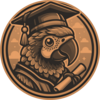
- 0 Resources
- 8 Discussions
- 7 Groups
Machine learning & data science specialist. Passionate about oceans, data and impact.
- 0 Resources
- 4 Discussions
- 5 Groups
🔧Full Stack JS Developer | Former Zookeeper 🐯
- 0 Resources
- 0 Discussions
- 3 Groups
Movement ecologist using conservation technology to study the behaviors of animals in the wild to understand how they cope with change and most effectively address conservation- and conflict-related issues.


- 0 Resources
- 10 Discussions
- 11 Groups
If you're a Post-Doctoral Fellow, a PhD student, or a member of the research staff interested in applying your computational skills to support active research publications, please read on to learn about the Cross-...
5 August 2025
If you're a PhD student, post-doc, advisor, or marine expert - Plan Vivo is looking for you!
5 August 2025
The Marine Innovation Lab for Leading-edge Oceanography develops hardware and software to expand the ocean observing network and for the sustainable management of natural resources. For Fall 2026, we are actively...
24 July 2025
Lead a growing non-profit to sustain open source solutions for open science!
19 July 2025
Funding
Are you a young (between 18 to 35 years old) and dedicated nature conservationist committed to protecting wild species? Do you combine passion with action to create concrete results in nature conservation? Are you the...
10 July 2025
Earth Blox is growing — discover roles where your skills can help organisations make nature and sustainability part of everyday decisions.
4 July 2025
Your role will be to deliver the Shrill Carder Bee Conservation Strategy 2020-2030 in England and Wales. This includes developing landscape-scale conservation projects for the Shrill carder bumblebee primarily in South...
26 June 2025
This is a chance to participate in a short survey about the preferences that conservation practitioners have for evidence. There's a chance to win one of three £20 Mastercard gift cards.
24 June 2025
Please help us by participating in a MSc research project on what you consider to be 'evidence' in your work in conservation.
19 June 2025
James Bowden, Senior Lecturer in Financial Technology at Strathclyde Business School, shares how MSc students are exploring the future of finance through hands-on experience with geospatial data on Earth Blox.
11 June 2025
Careers
Rewilding Europe is seeking a Business Intelligence Analyst to support measuring rewilding impact through data automation, dashboards, and cross-domain analysis.
3 June 2025
The intern will support CI in exploring and implementing AI solutions that address conservation challenges. We are looking for someone familiar with modern AI technologies (genAI, AI agents, LLMs, foundation models, etc...
2 June 2025
February 2026
October 2024
September 2024
event
| Description | Activity | Replies | Groups | Updated |
|---|---|---|---|---|
| This is wonderful, thanks for sharing! |
|
Community Base, Early Career, Human-Wildlife Coexistence, Women in Conservation Tech Programme (WiCT) | 11 hours 15 minutes ago | |
| Hello WILDLABS Community, Ocean Science Analytics recently launched an ocean-focused course for those interested in learning how to... |
|
Geospatial, Conservation Tech Training and Education, Early Career, Earth Observation 101 Community | 5 days 23 hours ago | |
| Hi Aleksandra,Welcome! I'm also from a technical background (software development, data engineering, and data science) and making the shift into conservation tech. Like you, I don... |
|
Early Career | 1 month 2 weeks ago | |
| Thanks Fadhilla! I met with your colleague Henrick at the booth. :-) |
|
AI for Conservation, Animal Movement, Camera Traps, Citizen Science, Community Base, Data management and processing tools, Early Career, Geospatial | 1 month 3 weeks ago | |
| p.s. https://environmentjob.co.uk/jobs has internships searchable for any location, not just UK. |
|
Geospatial, Early Career, Marine Conservation | 2 months 2 weeks ago | |
| Hi Ethan, It's indeed a competitive area. My advice for you (and anybody else seeking a PhD supervisor)...Do background research on each individual potential supervisor and always... |
|
Early Career, AI for Conservation, Animal Movement, Climate Change | 2 months 3 weeks ago | |
| Hi Frida!As a recent graduate gearing up for grad school applications, I've also been looking into conservation tech programs. As @carlybatist already mentioned, there's an... |
+2
|
Early Career, Conservation Tech Training and Education | 2 months 3 weeks ago | |
| My name is Frank Short and I am a PhD Candidate at Boston University in Biological Anthropology. I am currently doing fieldwork in Indonesia using machine-learning powered passive... |
|
Acoustics, AI for Conservation, Animal Movement, Data management and processing tools, Early Career, Emerging Tech, Ethics of Conservation Tech, Protected Area Management Tools, Software Development | 3 months ago | |
| Hello all!I just found this amazing resource and was hoping people here could help provide me some with advice! I am a junior web developer... |
|
Early Career | 3 months ago | |
|
|
Latin America Community, Acoustics, AI for Conservation, Camera Traps, Drones, Early Career | 3 months 1 week ago | ||
| Hi Karinna, That seems that a great plan and lots of nice skills to bring in!Don't hesitate to search the member directory or the organisations inventory to find suitable... |
|
Early Career | 4 months 1 week ago | |
| Hi @ziggy_4 , I agree with those who commented before, there are a lot of ways to get into the field. I went down the Biology route and then learnt more via my PhD. ... |
|
Early Career, Conservation Tech Training and Education | 4 months 1 week ago |
MASTER'S DEGREE FULL SCHOLARSHIPS UNDER THE SAMIA SCHOLARSHIP PROGRAM FOR THE ACADEMIC YEAR 2024/2025
27 August 2024 3:14am
Unpaid Research Internship @ WWF US (Wildlife Trafficking and AI)
26 August 2024 10:07pm
PhD positions available on dolphin ecology
26 August 2024 2:54pm
Path towards careers blending software, complex systems and biomimicry...
25 August 2024 6:40pm
Roddenberry Catalyst Grant (<$15,000)
13 August 2024 1:36pm
WWF South Africa Environmental Leaders Graduate Internship Programme 2025
9 August 2024 1:15pm
Human-wildlife conflicts junior consultancy
8 August 2024 7:54am
Volunteering in Bioacoustics
10 July 2024 9:46am
6 August 2024 3:37pm
Hi César,
Is there a geographic area you're limited to? That would help to narrow down options.
I would recommend reaching out perhaps to the Kitzes Lab, Sound Forest Lab, or Cornell Yang Center?
Call for Applications: Turtle Conservation Fund Grant Program
4 August 2024 1:56pm
Looking for a data job in conservation
1 August 2024 1:21pm
2 August 2024 8:06am
Hi Alex,
There are now many synergies between wildlife, conservation, and livestock. All are using geolocation software, and with the upcoming EUDR, it might be worth looking into this area.
While it's not strictly conservation work, these companies could provide you with valuable connections. These connections could potentially lead to a role in conservation.
Kim
3 August 2024 9:46am
Many thanks for your feedback, Kim! I'll check it out.
AI and Ecology Research Infosession
1 August 2024 3:58pm
23 August 2024 9:44pm
AI accelerator for nonprofits working in the Climate area
31 July 2024 3:01pm
31 July 2024 6:24pm
Great acomplishment!!!
1 August 2024 1:39pm
Thank you so much! Now everything is in the hands of amazing organizations and companies! But the first results of the Disaster Management cohort are bringing a very optimistic vision! :) I hope for the same in the Climate cohort!
PROTECTION OFFICER JOB POSITION AT SOUTHERN TANZANIA ELEPHANT PROGRAM(STEP)
31 July 2024 5:55pm
PROGRAM MANAGER JOB POSITION
31 July 2024 3:41pm
Internship - Predator Monitoring - South Africa
30 July 2024 6:24pm
Area Manager for Baboon Management in Hermanus, South Africa.
30 July 2024 6:19pm
Volunteers needed for the season 2024!!
30 July 2024 6:13pm
A tourism officer needed: Casual/ Permanent Part-Time.
30 July 2024 6:07pm
Internship opportunity, Honeyguide
24 July 2024 11:48am
24 July 2024 5:18pm
25 July 2024 4:32pm
Research Assistant, RISE by Grumeti Fund
10 July 2024 9:45am
Advice on an educational pathway to a career in conservation tech?
2 July 2024 1:10am
7 July 2024 8:26am
Transitioning into conservation tech with a background in wildlife ecology and an interest in AI involves choosing between a bridge program to an MSCS and a second undergraduate degree in Computer Science.
- Bridge Program (to MSCS): Pros include efficiency and flexibility for future program choices, but it may not provide as deep a CS foundation as a full degree.
- Second Undergraduate Degree (in CS): Offers thorough CS knowledge and academic immersion but requires more time and cost.
Considerations:
- Career Goals: Applied roles may benefit from a bridge program, while a second degree could be better for research or PhD aspirations.
- Program Quality: Evaluate reputation, curriculum, faculty, and alumni outcomes.
- Practical Steps: Research programs, consult advisors, and consider online options for flexibility.
Choose based on how well each option aligns with your career goals and preferred learning style.
Thoughts on new MSc in Conservation Technology
24 May 2024 3:54pm
29 May 2024 12:44pm
Building on Frank's comments, I'd also think about including some conversation about the ethical use of technology - Trishant's talk at Tech Tutors a little while ago sparked a really important conversation here in our community, one that would be valueable to have with your students.
25 June 2024 9:19am
Hello,
Thanks for your comments both, and the information, this is really helpful. I agree correct use and validation is so important here. And thank you for the contact for Kate, the course looks really interesting.
Thank you for your offer, Frank, I'll send an email through.
Best,
Emma
29 June 2024 6:15am
It would be great to address data collection, handling and storage. It starts with keeping good records of field deployments so that devices can be refound and helps at the time of analysis and reporting and so studies can be reproduced. Having an understanding of metadata standards for data types as these are often overlooked when projects are starting up. Knowing if there are existing databases or repositories for your data or if you will have to 'roll your own' (something more than an Excel spreadsheet, or at least knowing the potential pitfalls of relying on spreadsheets). That would be a great advantage when entering the workforce and working in this field.
Enter to win a free thermal camera!
26 June 2024 5:38pm
Tanzania Take Two: Kicking off our new cohort of Women in Conservation Technology Programme 2024
 WILDLABS Team
and 2 more
WILDLABS Team
and 2 more
17 June 2024 5:47pm
17 June 2024 7:45am
NEW PUBLICATION ALERT!
17 June 2024 11:33am
17 June 2024 12:57pm
17 June 2024 7:40pm
Into Conservation: participating in wildlife research at Grumeti-Ikorongo Game reserves.
15 June 2024 7:08pm
17 June 2024 7:34pm
17 June 2024 7:35pm
17 June 2024 7:36pm
Conservation Technology for Human-Wildlife Conflict in Non-Protected Areas: Advice on Generating Evidence
22 January 2024 11:36pm
4 February 2024 8:16am
Hi Amit,
The most important thing is that the livestock owners contact you as soon as possible after finding the carcass. We commonly do two things if they contact us on the same day or just after the livestock was killed:
- Use CyberTracker (or similar software) on an Android smart phone to record all tracks, bite marks, feeding pattern and any other relevant signs of the reason for the loss with pictures and GPS coordinates. [BTW, Compensation is a big issue -- What do you do if the livestock was stolen? What do you do if a domestic animal killed the livestock? What if it died from disease or natural causes and was scavenged upon by carnivores afterwards?]
- In the case of most cats, they would hide the prey (or just mark it by covering it with grass or branches and urinating in the area). In this case you can put up a camera trap on the carcass to capture the animal when it returns to its kill (Reconyx is good if you can afford it - we use mostly Cuddeback with white flash). This will normally only work if the carcass is fresh (so other predators would not be able to smell it and not know where it is yet), so the camera only has to be up for 3-5 days max.
This is not really high-tech, but can be very useful to not only establish which predator was responsible (or if a predator was responsible), but also to record all the evidence for that.
13 June 2024 8:58pm
Hey Amit,
This is a great question; from our work, we've seen people do a couple of things. We've even seen people using Ring doorbell footage in urban areas as evidence.
The best thing we've seen is matching the community needs with existing infrastructure:
- Are there existing cameras you can leverage, like the doorbell cameras?
- Can public participation monitoring service this, i.e. public submitted photos and videos?
It also totally depends on the wildlife species you're working with, the interaction, damages, etc. If you've found any good solutions, let me know. I'd love to share that information with our clients here who have constant bear problems.
14 June 2024 9:09am
In that case, you might want to keep an eye on the project from @Lars_Holst_Hansen
I have been working hard on this camera based polar bear alarm with Kim Hendrikse and other collaborators including Zoologisk Have in Copenhagen - where the system is now beeing tested. | Lars Holst Hansen | 17 comments
I have been working hard on this camera based polar bear alarm with Kim Hendrikse and other collaborators including Zoologisk Have in Copenhagen - where the system is now beeing tested. I hope to field test it at Zackenberg Research Station next year. | 17 comments on LinkedIn
Postdoctoral Research Associate: Bioacoustics & population modeling
11 June 2024 9:35pm

































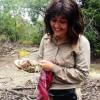

















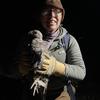

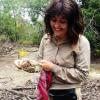

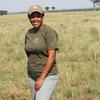






6 August 2024 1:59pm
Hey @cesar_rou ,
I've heard about these internship/volunteer opportunities that may be of your interest.
https://archipelago.gr/get-involved/placements-and-internships/marine-mammal-team/
https://www.cetaceos.org/intership-erasmus/
https://www.cetaceos.org/volunteering/
Also you could subscribe to MARMAM list which often post on training opportunities related to marine mammals.